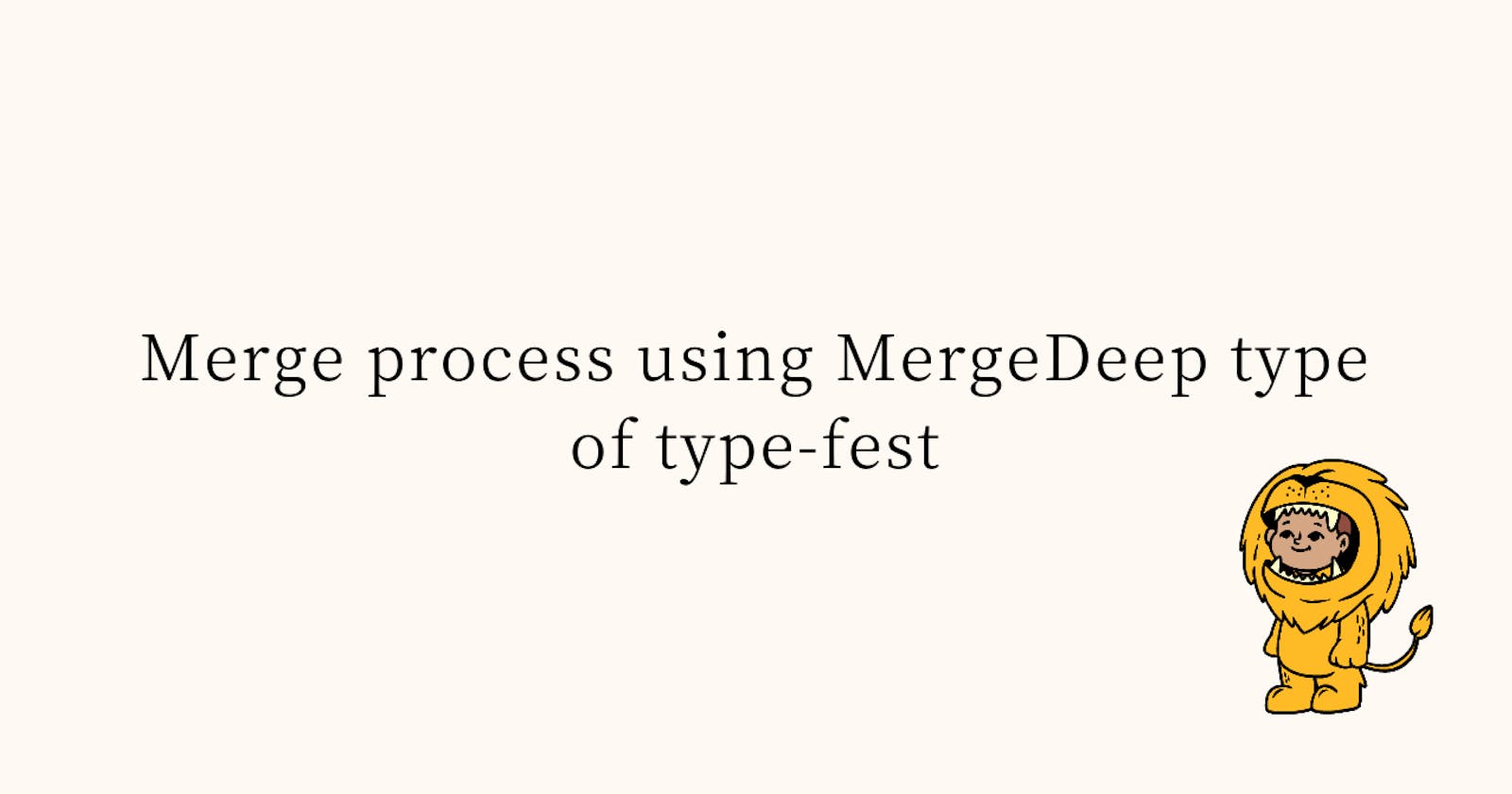Hi, there.
I have created a demo of a merge process using type-fest's MergeDeep type, and I would like to introduce it to you.
This demo implements the following parts.
Two types are provided.
type Foo = {
life: number;
items: string[];
users: { id: number; name: string }[];
a: { b: string; c: boolean; d: number[] };
};
type Bar = {
name: string;
items: number[];
users: { id: number; name: string }[];
a: { b: number; d: boolean[] };
};
It is implemented using the mergeDeepWith function ported in the ramda library.
const mergeDeep = <Source, Destination, Options extends MergeDeepOptions = {}>(
source: Source,
destination: Destination,
options?: Options
): MergeDeep<Source, Destination, Options> => {
// https://github.com/sindresorhus/type-fest/blob/main/source/merge-deep.d.ts#L416-L456
// Make your implementation ...
const mergedObj = mergeDeepWith<Source, Destination>(
(x, y) => {
// https://github.com/denoland/deno/blob/main/ext/node/polyfills/util.ts#L30-L32
if (Array.isArray(x) && Array.isArray(y)) {
return [...x, ...y];
}
if (x) return x;
if (y) return y;
return null;
},
source,
destination
);
return mergedObj;
};
Prepare data matching the two types in the demo.
const a: Foo = {
life: 1,
items: ["a"],
users: [
{
id: 1,
name: "user1",
},
{
id: 2,
name: "user2",
},
],
a: {
b: "@",
c: false,
d: [1, 2, 3],
},
};
const b: Bar = {
name: "bar",
items: [4, 5, 6],
users: [
{
id: 3,
name: "user3",
},
{
id: 4,
name: "user4",
},
],
a: {
b: 111,
d: [true, false],
},
};
Execute the implemented function to obtain the result.
const result = mergeDeep<Foo, Bar>(a, b);
console.log(result);
// output
{
life: 1,
items: [ 'a', 4, 5, 6 ],
users: [
{ id: 1, name: 'user1' },
{ id: 2, name: 'user2' },
{ id: 3, name: 'user3' },
{ id: 4, name: 'user4' }
],
a: { b: '@', c: false, d: [ 1, 2, 3, true, false ] },
name: 'bar'
}
That's all, briefly.
See you then.
